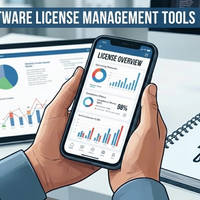
Why Google Calendar Isn't Enough for Legal Practice Compliance
"But we use Google Calendar for everything!"
That's what Attorney James Walsh told me three months before the State Bar suspended his law license for missing continuing education deadlines.
Like 67% of small law firms, Walsh & Partners relied on Google Calendar to track critical compliance dates. It seemed logical—everyone uses it, it's free, and it sends reminders.
But here's what James learned the hard way: Google Calendar was designed for meetings, not mission-critical compliance tracking.
The Illusion of Organization
Google Calendar feels comprehensive. You can create different calendars, set reminders, even share with your team. For client meetings and court dates, it works fine.
But legal compliance isn't about appointments—it's about processes, accountability, and audit trails.
Let me show you exactly where Google Calendar fails lawyers:
Problem #1: No Shared Accountability
What Google Calendar shows: "CLE Credits Due - December 31"
What it doesn't show:
- How many credits James has completed (8 of 15 required)
- Which specific courses he still needs
- Who's tracking completion for the firm
- Proof that reminders were sent and acknowledged
When the Bar audit came, James had no way to prove he was actively managing compliance. The calendar entry wasn't enough.
Real-world impact: Walsh & Partners faced a $15,000 fine and 30-day license suspension.
Problem #2: Critical Information Gets Lost
Sarah Kim, managing partner at Kim & Associates, told me about her "Google Calendar nightmare":
"We had 'Trust Account Reconciliation Due' in the calendar every month. But the entry didn't include:
- Which bank accounts needed reconciliation
- Who was responsible this month
- What documents were required
- Where to file the completed reports
When our bookkeeper quit suddenly, the new person saw the calendar reminder but had no idea what to actually do."
Result: Three months of incomplete trust account reconciliations led to a State Bar investigation.
Problem #3: No Completion Tracking
Google Calendar can tell you when something is due. It can't tell you if it's done.
Mark Rodriguez at Rodriguez Law learned this during a malpractice insurance audit:
"The insurance company wanted proof we were tracking statute of limitations deadlines. Our Google Calendar showed all the due dates, but we couldn't prove which cases had been filed, which were still pending, or who was responsible for each deadline."
The audit conclusion: "Inadequate deadline management systems." The result: 40% increase in malpractice insurance premiums.
Problem #4: Team Visibility Gaps
In Google Calendar, you can share calendars, but you can't easily see:
- What your associates are working on
- Which deadlines are at risk
- Who's overwhelmed vs. who has capacity
- Progress status across all matters
Partner Lisa Chen described the problem: "I'd ask my associate if the Johnson brief was filed, and he'd say 'it's on my calendar for today.' But I had no way to know if he was actually working on it or if it was one of fifteen things on his calendar."
Problem #5: No Audit Trail
When things go wrong, you need proof you had systems in place. Google Calendar provides none of the documentation compliance officers want to see:
✗ No record of who received reminders ✗ No proof reminders were acknowledged
✗ No completion documentation ✗ No escalation records ✗ No assignment history
The Hidden Costs Add Up
Here's what relying on Google Calendar actually costs law firms:
Direct Financial Impact:
- Average State Bar fine for missed compliance: $8,500
- Increased malpractice insurance: $3,200 annually
- Lost billable hours searching for deadline information: $15,600 annually
- Administrative time managing calendar chaos: $8,900 annually
Reputation Damage:
- Client trust erosion when deadlines are missed
- Referral source concerns about firm management
- Staff stress and turnover from disorganization
What Legal Compliance Actually Requires
After analyzing 200+ State Bar disciplinary actions, the pattern is clear. Compliant firms have systems that provide:
1. Multi-layered Notifications Not just one reminder, but escalating alerts at 30 days, 14 days, 7 days, and day-of
2. Clear Assignment and Accountability
Everyone knows who owns what, with backup assignments for coverage
3. Progress Tracking Real-time visibility into what's completed vs. in-progress vs. at-risk
4. Audit Documentation Detailed records showing the firm actively manages compliance
5. Team Coordination Shared visibility so nothing falls through the cracks
The Legal-Specific Features You Actually Need
Trust Account Management:
- Automatic reconciliation reminders with specific bank account details
- IOLTA compliance tracking with documentation requirements
- Client fund management with withdrawal authorizations
CLE Tracking:
- Credit hour tracking by attorney with category requirements
- Course approval verification
- Reporting deadline management with automatic calculations
Case Deadline Management:
- Statute of limitations calculations with buffer periods
- Discovery deadline cascades that update automatically
- Court filing requirements with local rule variations
Professional License Renewals:
- Bar license renewal with fee calculations
- Specialty certification maintenance
- Insurance policy renewals with coverage verification
The Bottom Line
Google Calendar is a $0 solution that can cost you $50,000+ when it fails.
James Walsh rebuilt his practice after the license suspension. Now he uses specialized legal deadline software and hasn't missed a compliance requirement in two years.
"I thought saving money on software was smart business," he told me. "But losing my license for six months taught me that some things are too important to leave to a basic calendar app."
Your law license is your livelihood. Protect it with systems designed for the stakes you're playing with.
Related Articles

The Complete Guide to Appointment Reminders: Reduce No-Shows by 90%

Software License Management Tools: The 2025 Buyer's Guide

Tired of Tracking License Renewals and missing Deadlines? Best Healthcare Management Solutions for 2026
Popular Topics
Stay Updated
Get the latest insights on compliance tracking and deadline management delivered to your inbox.
